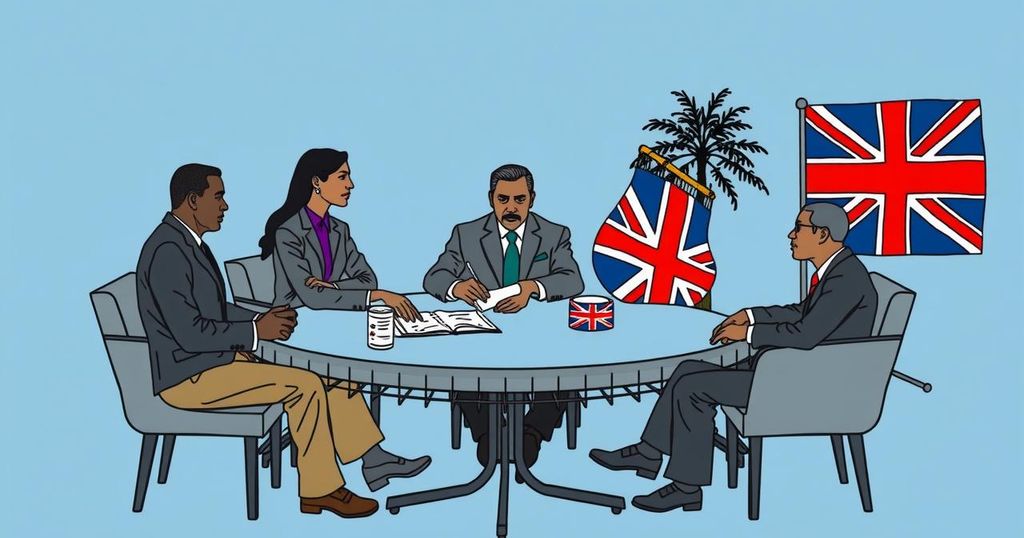The Commonwealth Heads of Government Meeting in Samoa is focusing on two critical issues: reparations for Britain’s role in the transatlantic slave trade and the urgent effects of climate change on small island nations. Leaders are expected to issue a declaration on ocean protection, while reparations discussions reflect a broader movement for justice and acknowledgment of slavery’s enduring impact. Both topics underscore the interconnected nature of global challenges faced by Commonwealth nations.
The Commonwealth Heads of Government Meeting (CHOGM) commenced in Samoa, focusing on two pivotal issues: slavery reparations and climate change. Leaders from 56 Commonwealth nations, alongside His Majesty King Charles, gathered to deliberate on these matters, highlighting the urgent concerns of small island states particularly threatened by climate change. The meeting follows warnings from United Nations Secretary-General Antonio Guterres, who emphasized that ocean temperatures in the Pacific Islands are rising at a rate three times faster than the global average, thereby creating unique challenges for the local population. Australian Foreign Minister Penny Wong underlined the existential threat posed by climate change, describing it as the foremost national security and economic threat for the Pacific peoples. In addition to climate concerns, the topic of reparations for Britain’s historical participation in the transatlantic slave trade emerged prominently. Although British Prime Minister Keir Starmer stated that discussions regarding reparations would not take place formally at the summit,dialogue on this issue remains critical for many Commonwealth nations, particularly those in the Caribbean and Africa. CARICOM has initiated a commission advocating for reparations from former colonial powers, asserting that the legacies of slavery continue to perpetuate racial inequities today. As discussions unfold, it is expected that leaders will produce a declaration emphasizing ocean protection and the need for urgent climate action and reparations.
The Commonwealth of Nations, comprising 56 member states with historical ties to the British Empire, convenes to address pressing global issues affecting its diverse member countries. The Commonwealth Heads of Government Meeting is a platform for leaders to engage on broad political and economic topics, with this particular summit focusing notably on the interlinked challenges of climate change and historical reparations related to slavery. The impacts of climate change are acutely felt by smaller states, especially low-lying island nations vulnerable to rising sea levels. Concurrently, the legacy of slavery continues to provoke discourse on reparative justice, particularly as nations such as those in CARICOM push for acknowledgment and restitution for historical injustices.
In conclusion, the Commonwealth leaders’ meeting in Samoa serves as a crucial forum to address significant issues such as climate change and reparations for historic injustices stemming from the transatlantic slave trade. The dialogue surrounding climate change highlights the unique vulnerabilities faced by Pacific island nations, whereas discussions on reparations underscore the ongoing repercussions of slavery and the need for accountability and dialogue among Commonwealth nations. The outcomes of CHOGM may have lasting implications for both environmental policy and the pursuit of social justice within the Commonwealth community.
Original Source: www.swissinfo.ch







